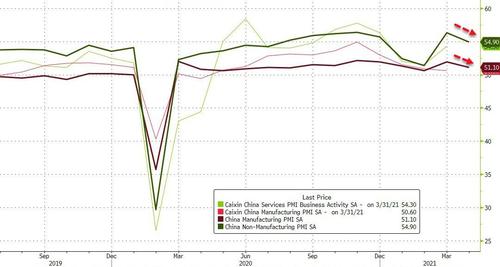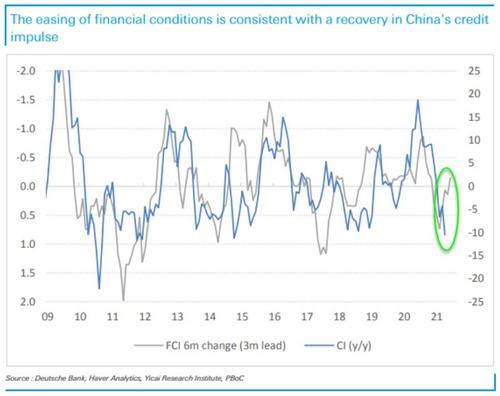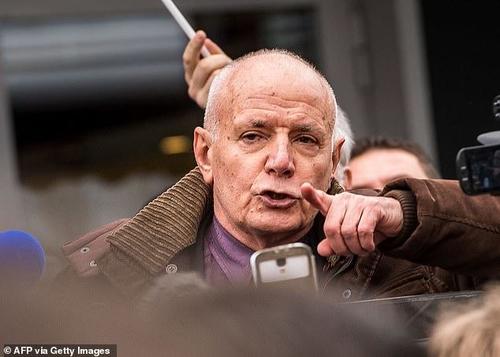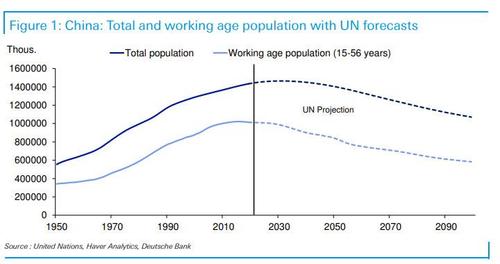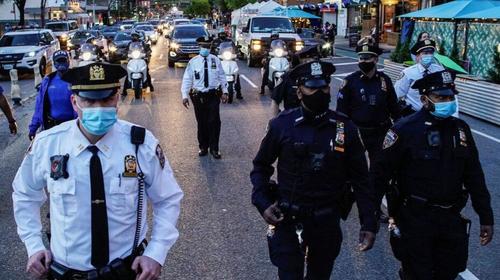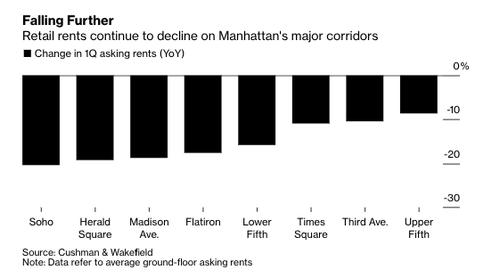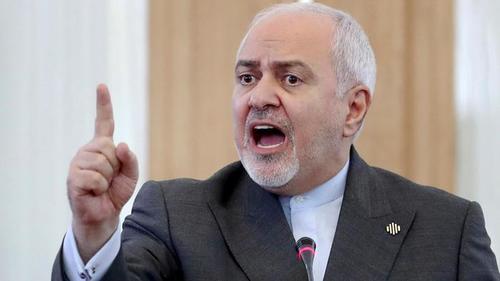Authored by Glenn Greenwald and Siraj Hashmi via Outside Voices Substack, (emphasis ours)
Biden’s claim that the Capitol Riot was the “worst attack on our democracy since the Civil War” is ahistorical garbage…
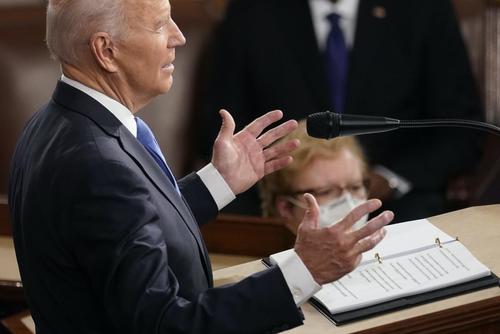
As President Biden wrapped up a 65-minute joint address to Congress to mark his administration’s first 100 days, what was shared in the lead-up to his speech sowed discord over the entire affair:
Sure enough, the President delivered on this. Opening his address, Biden stated, “I took the oath of office — lifted my hand off our family Bible — and inherited a nation in crisis. The worst pandemic in a century. The worst economic crisis since the Great Depression. The worst attack on our democracy since the Civil War.”
Yes, the January 6th siege on the U.S. Capitol building, often alluded to as an “insurrection,” was an embarrassing day for our country. But to suggest that it was “the worst attack on our democracy since the Civil War” is disingenuous at best. At worst, it’s a malicious attempt to whitewash the history of attacks carried out both by and on the government that have had much more catastrophic results.
Apart from the September 11th terrorist attacks that targeted the country’s financial system, Al Qaeda terrorists attacked the defenders of our democracy when a hijacked American Airlines flight 77 flew into the Pentagon. Were it not for the heroes who resisted against the hijackers of United flight 93, Al Qaeda’s attempt to fly a commercial airline into the White House or U.S. Capitol building would have come to fruition. Despite being a horrific tragedy, 9/11 has been dismissed by some as being explicitly a “foreign attack,” not one from within.
So, let’s explore attacks on our democracy from within.
Following 9/11, the Bush administration, in conjunction with Congress, expedited the passage of the Patriot Act, a wide-sweeping national security law that infringed on the civil liberties of every American in the name of fighting terror. The Fourth Amendment became a relic of the past as the government’s power to surveil and spy on its own citizens reached its peak. Individuals who shared names with persons of interest or suspected terrorists, including U.S. citizens, landed on government no-fly lists, restricting their right to freely move about the country for dubious reasons and with no due process or recourse. And even worse, many had their right to due process eviscerated when they were detained by the newly-created Department of Homeland Security and found themselves at Guantanamo Bay without even being charged with a crime.
Yet this is not the first time that American citizens, or even permanent residents for that matter, had their rights infringed upon by the government.
As the FBI was formed in the early 20th century, Americans whose ideologies were at odds with the government’s interests were often targeted by the agency’s longest-serving director, J. Edgar Hoover. In the eyes of the FBI Director, Dr. Martin Luther King Jr. was a suspected communist given his ties to Stanley Levison, whose suspected pro-communist activities were monitored by the FBI in the 1950s. Although Dr. King has been viewed as one of the most consequential leaders in American history due to his role in the civil rights movement, at the time, Hoover and many in the FBI viewed him as a threat to our democracy, ushering in communism under the guise of “civil rights.” The FBI infamously blackmailed Dr. King by sending him a letter advocating he commit suicide.

J Edgar Hoover (1895 -1972) points his finger while testifying before the House on Un-American Activities Committee, Washington, DC. (Photo by Hulton Archive/Getty Images)
The Red Scare was so severe in the United States that the government actively sought to chip away at Americans’ First Amendment rights to prevent the spread of such ideas. And through the Lavender Scare in the early 1950s, thousands of people were forced out of government service for simply for being suspected of being homosexual.
When the United States entered the First World War, President Woodrow Wilson signed the Espionage Act of 1917 into law, which then gave way to the Sedition Act of 1918. These two laws worked in conjunction to strip away the First Amendment rights of every American and demand undying fealty towards the U.S. government. Expressing even the slightest bit of criticism of the U.S. or associating with groups like the Communist Party could result in, at the very least, a government wiretap, and, at worst, a hefty prison sentence and possible execution. In the same token that President Franklin Roosevelt interned approximately 120,000 Japanese Americans during World War II in fear that they might side with the Japanese Empire, the Espionage and Sedition Acts under President Wilson explicitly targeted German-born American residents during World War I, with over 2,000 arrested and sent to internment camps.
While the FBI has had its fair share of attacking our democracy, its intelligence counterpart, the CIA, has interfered in the affairs of other countries countless times. As Americans decry countries like Russia, China, and Iran for interfering in our electoral process, the CIA has had a hand in interfering in the affairs of well over a dozen nations. For as many autocratic regimes as the CIA tried to topple in places like Cuba, Indonesia, and the Dominican Republic, the CIA had a hand in the overthrow of democracies as well in countries like Iran, Chile, and Guatemala.
For decades, J. Edgar Hoover — the notorious FBI Director after whom the law enforcement’s DC headquarters continues to be named — assaulted democracy in every way imaginable. Hoover kept dossiers on political leaders to enforce his will over them. His agency tried to blackmail Dr. Martin Luther King, Jr. into suicide with threats to expose alleged adultery. FBI agents routinely infiltrated anti-war and civil rights groups as part of its COINTELPRO program and other similar domestic spying activities. And the NSA notoriously spied on millions of American citizens without warrants.
There is a strong argument to be made that the CIA is responsible for interfering in American democracy, too.
The first impeachment of President Donald Trump in 2019 occurred when a whistleblower within the CIA filed a complaint after Trump had a call with Ukrainian President Volodymyr Zelensky in which Trump asked his Ukrainian counterpart to investigate his political rival, Joe Biden, in exchange for $400 million in military aid.
But it didn’t end there.
The story of the Russian Bounty program on U.S. troops in Afghanistan that broke publicly in the summer of 2020 made a significant impact in tipping the scales during the 2020 presidential election. The CIA produced the initial intelligence assessment in 2019, which later broke publicly in the summer of 2020, further cementing the perception that Trump was in the pocket of Russian President Vladimir Putin––a claim that was exacerbated when then-President Trump dismissed the allegations outright, calling it “fake news.” However, in April 2021, Trump would be vindicated as the U.S. government revealed that the Intelligence Community had “low to moderate confidence” in the intelligence assessment. In other words, there was little evidence to prove that it was real.
On top of these government abuses that took place on a wide scale impacting every American, there was a long-drawn-out period since the Civil War that impacted millions of Americans that has had consequences that last to this day: Jim Crow.
Following the Civil War and Reconstruction, the implementation of Jim Crow laws in Southern former slave states not only segregated black people from the white population, but also barred them from fully participating in society as equal members. Through policies like poll taxes, literacy tests, and increased residency requirements, black people had their right to vote stripped away, essentially removing them from the political process, keeping them further ostracized from society. It was authoritarianism in the most sinister manner, targeting a racial group that was perceived to be subhuman to their white counterpart, all in the name of protecting democracy.

A young boy drinks from the ‘colored’ water fountain on the county courthouse lawn, Hallifax, North Carolina, April 1938. (Photo by John Vacha/FPG/Getty Images)
Despite all these examples in which our democracy––and the democracies of other nations––were attacked with our government playing the central antagonist, there were a half dozen times where the sitting U.S. president and, by extension, our democracy were attacked from within. Since the Civil War, four U.S. presidents were assassinated (Lincoln in 1865, Garfield in 1881, McKinley in 1901, and Kennedy in 1963) and two presidents were injured in assassination attempts (Roosevelt in 1912 and Reagan in 1981). These were six attacks on the duly elected leaders of the people of the United States. Not only does changing the leadership alter the trajectory for a nation, but due to its status, it has lasting effects for the rest of the world.
If President Biden is to suggest that the siege on Capitol Hill on January 6th was “the worst attack on our democracy since the Civil War,” then we should demand that our leaders be honest about what does and does not constitute an “attack on our democracy.” Attacks on our democracy aren’t just reserved for storming the U.S. Capitol and targeting U.S. lawmakers with historically low approval ratings. If that’s the case, that a certain set of rules only applies to the political elite and not the people, then it’s safe to say that we do not truly live in a democracy.




